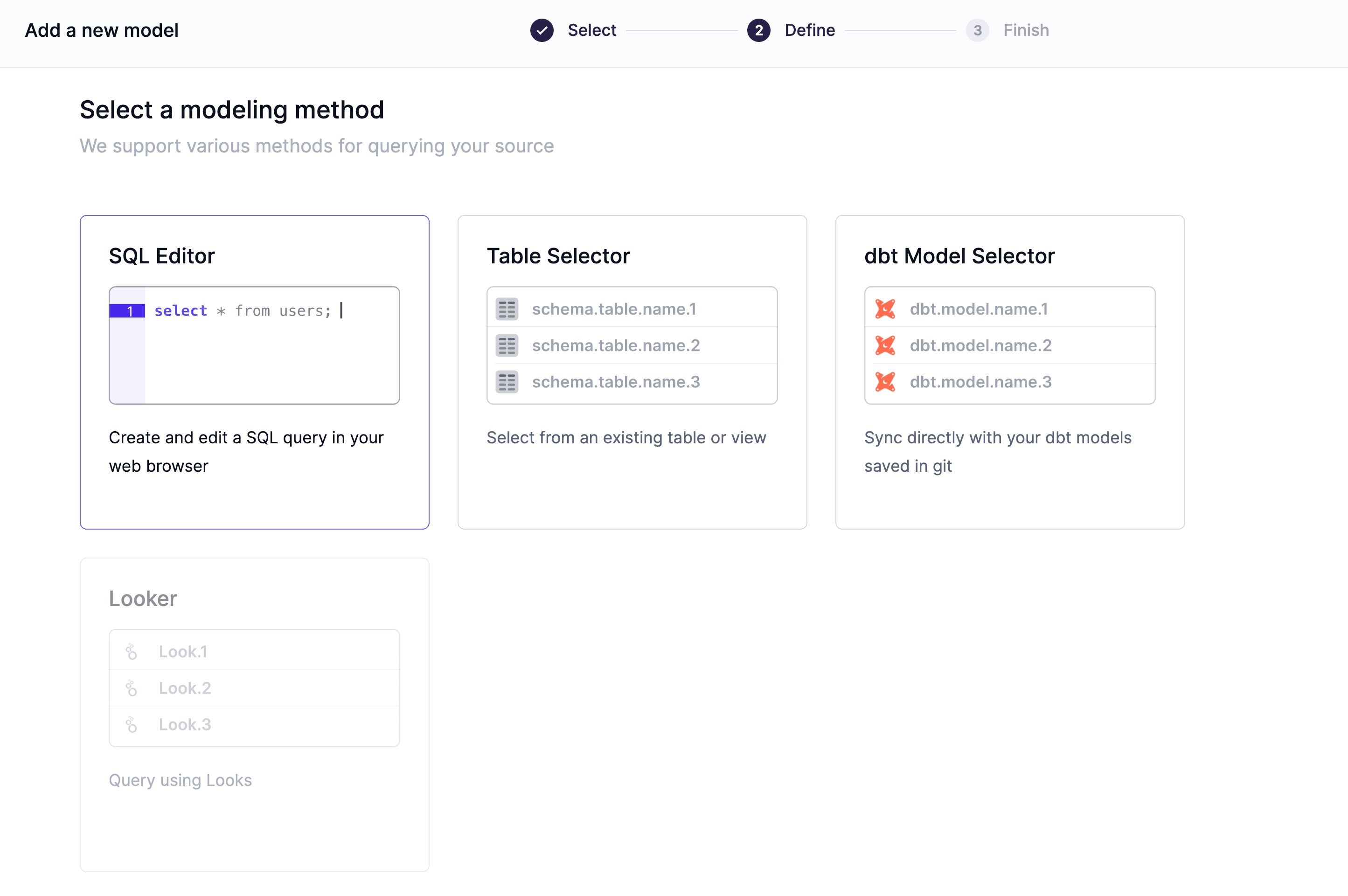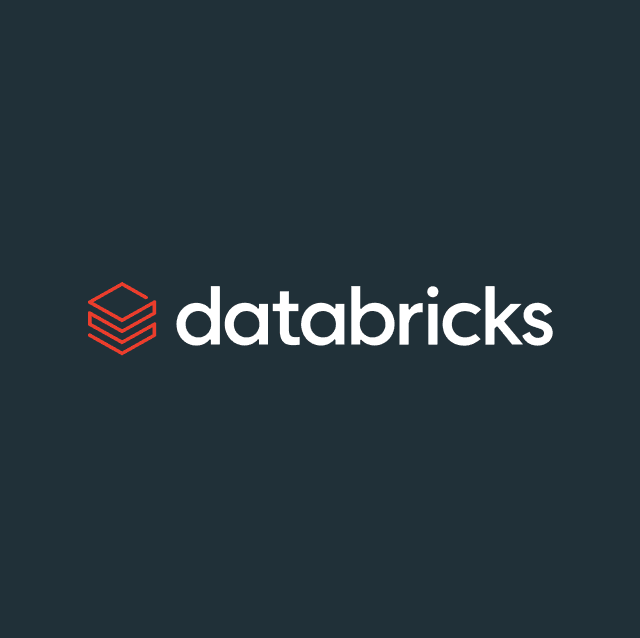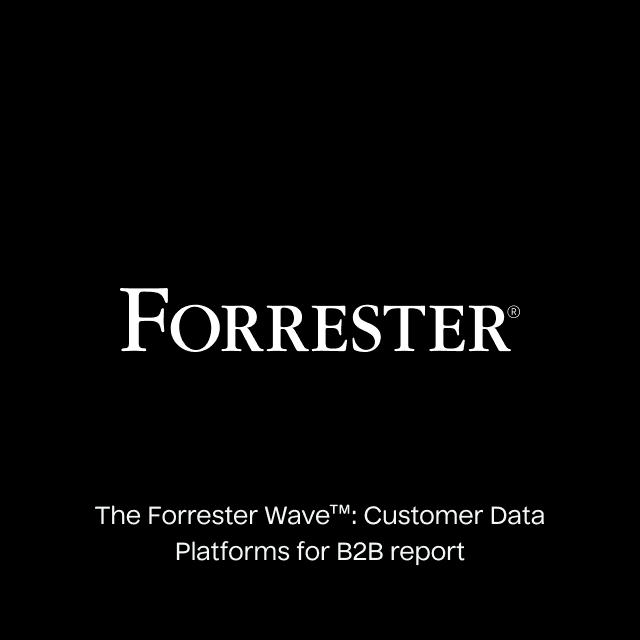Have you ever realized something that profoundly changed how you think about your work? Something that caused you to re-evaluate dozens of past decisions and think differently about hundreds of possible future ones? I had one of those moments not too long ago.
It started with a wildly frustrating conversation. I was talking with a data analyst about our plan for providing daily updates to our sales team as new users signed up for our product. I wanted to empower our sales team to take action on a Product Qualified Lead, follow up, and report back. The conversation went something like this:
Me: “We added inbound signup and activation data for our priority account-based marketing targets to Snowflake, right?”
Analyst: “Yes, it’s there and ready to go.”
Me: “Wow, thanks for doing that so quickly - can we move it over today and get going?”
Analyst: “No, the native Salesforce connector doesn’t let us.”
Me: “Can we use Segment?”
Analyst: “No, it would take months to make it do that.”
Me: “What about Tray?”
Analyst: “It’s not reliable enough.”
Me: “What about that connector engineering set up last year?”
Analyst: “It’s broken and the person who made it is on parental leave.”
Me: “What about Workato? Don’t we have that?”
Analyst: “We could do that. But it would cost about $30,000 in contractor bills. Do you have any budget?”
Me: “So, you’re saying I pay for Snowflake, I pay for Salesforce, I spend hundreds of thousands of dollars a year on 5 other companies to move data between them, and in spite of all of that I need another $30,000 to move a piece of data I already have?”
Analyst: “Pretty much. Oh, and the Workato contractor will need about a month after we hire them to do the work, and we haven’t hired anyone yet, so this might take a while. Until then we can just upload CSVs a couple of times a day if you want, but there’s a chance most of the team will quit.”
At this point in the conversation, I had to excuse myself to deal with the overwhelming feeling of physical illness I was experiencing. I’ll spare you that part of the story.

My A-Ha Moment
For the better part of the last two decades, I’ve played a small part in creating billions of dollars of enterprise value at companies like New Relic, Intercom, and Sprinklr. And I’ve been having pull-my-hair-out conversations like the one above at every stop along the way. I realized recently that I was asking myself all the wrong questions:
- Why is this so hard?
- It’s going to cost me what?
- Should I just hire more people?
Finally, I asked the right question: Is there a better way? And I was elated to realize that the answer is: Yes! Finally, yes!
I recently left those companies to join Hightouch as their first VP of Marketing & Growth because I believe wholeheartedly that Hightouch’s approach to Data Activation is the way out of this mess.
You see, the deep dark secret of all those other technologies, native connectors, and ways of getting data from A to B to C is that they’ve evolved themselves into a dead end. They represent an outdated way of organizing data, processing it, and making it work for businesses—and we all suffer for it.
The Way We Move Data Around is Broken
It started with business people needing insights from data so we created (or bought) database systems for them. We gave salespeople CRM systems, marketers e-mail automation tools, advertisers ad platforms, and success teams customer service software. Then we built online stores and online products and those had databases too. Then we had the bright idea - “We’ve got all this data, what if:
- Marketers knew what the salespeople were doing and could send a better email.
- Advertisers knew that a customer had already purchased a certain item so we stopped serving ads for that item.
- Salespeople knew the last thing the customer did, and reached out accordingly.
And that’s when all hell broke loose.
We started connecting all these systems directly with custom integrations; we linked up others with “if this, then that” statements; invented entire categories of software like “customer data platforms” to move metrics around. And in the end, our poor analytics and operations teams still grab files from Google sheets and do daily .CSV uploads.
And so our metrics don’t match up when the CEO asks for them. Operations teams wake up every morning wondering which of their automations is going to fail because the data didn’t load. Analysts wonder which dashboard isn’t going to refresh. Sales wonders if their forecast is actually right. Finance wonders if their audit is going to be accurate. And the cycle goes on and on for every business team.
It’s a nightmare that I’ve only just recently woken up from - and you could too. Enter the data warehouse and Hightouch.
The Answer Is Simple: Activate the Data That’s Already in Your Warehouse
The best thing is often the simplest thing. And there is a simple, clean, and inexpensive way to solve this problem:
- ✨ Put the raw data you need into your data warehouse
- 🧮 Perform complex transformations and computations on that data, as often as you’d like.
- 🔀 And then, use Hightouch to move it automatically whenever you want to any business system where your teams work.

The bottom line: If it’s in the warehouse, then it can be in the hands of the people that do the actual work. It’s faster, cheaper, and more flexible than writing custom integrations between pieces of software. It doesn’t require a complex, year-long rollout of a Customer Data Platform with a massive bill on top of your existing data warehouse bill (not to mention maintaining various “sources of truth”).
You don’t need to link up and manually update lists of “if this, then that, but not in this scenario” conditions in a tool that no one really understands with logic that regularly breaks.
Best of all, your employees can actually go on vacation without setting a reminder on their phone to “upload recentsignups_final_FINAL.CSV.”
Hightouch activates your data using the exact same SQL queries your analysts already write. You can even leverage existing dbt models or Looker looks to build your models. To empower less-technical teams (and free up precious engineering time), we also provide a simple visual editor that makes it so easy to move data around that even past-their-prime B2B marketing execs like me can do it.

End the Broken Data Cycle With Hightouch
I’ll close just by saying this: once you know something you can’t un-know it. If you made it this far down this blog post, then you must have seen something like the nonsense and chaos I’m referring to above. You don’t need to put up with it anymore. There is genuinely an easier way that benefits engineers, marketers, and the businesses they support. I’ll close with some quotes from people who use Hightouch every day.
“Our Salesforce data pipeline was the bane of our existence. It broke on a weekly basis, took 20 hours to complete, and there was no easy way to view what data had been updated without looking at the logs. Adding a new field would take several hours because we would have to test it and figure out why it failed. With Hightouch, we can do all of this in seconds.”

Seamus McKinsey
Sr. Analytics Engineer at CircleCI
“Thanks to Hightouch, I no longer have to wake up on Saturdays and Sundays to upload manual CSV files. With Hightouch, we can trust that the same data that lives in our internal reports is the same data that is getting passed to our ad platforms.”

Mallory Reese-Bagley
Sr. Marketing Operations Manager at Lucid
“We were worried about migrating from Salesforce Marketing Cloud to Braze. Hightouch made it easy to get immediate value out of Braze. If we didn’t have Hightouch, Braze never would have been approved.”

Ryan Newsome
Head of Data
“Hightouch really expands the reach of Snowflake for us. Not everyone is doing their work in a BI tool—some of our employees are doing it in a CRM, and that is why Hightouch is valuable.”

Erik Edelmann
Sr. Analytics Engineering Manager
If you want to learn more about how your team can end the broken cycle and start activating your data, you can sign up for a demo, or create a free Hightouch account.

















